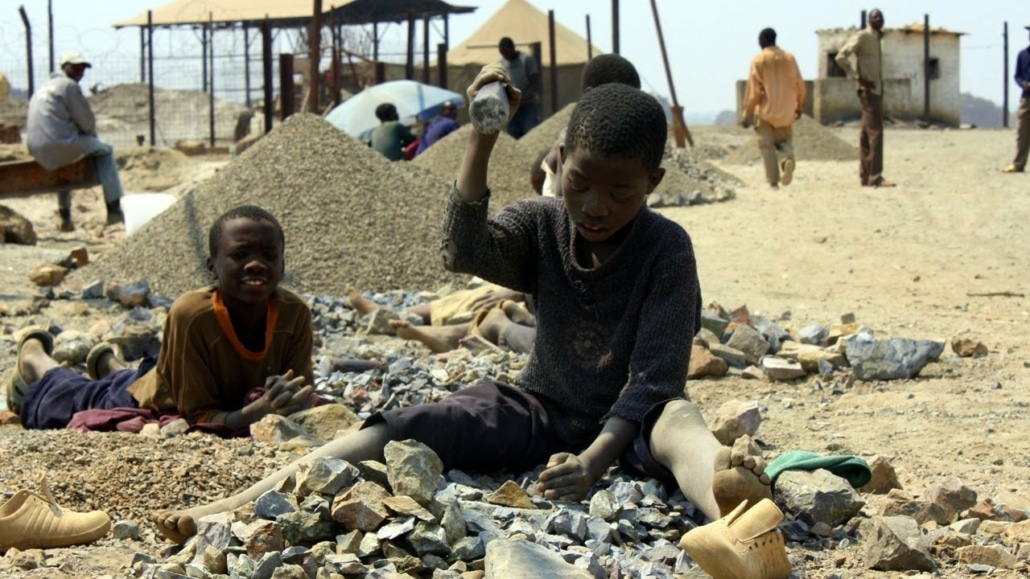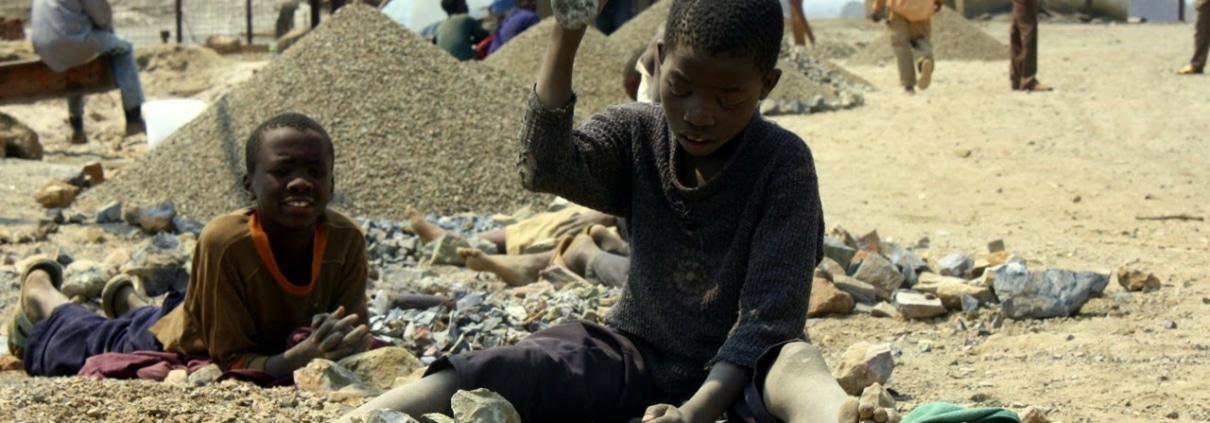To Meet Global Cobalt Demand, Companies Must Reform Mining Practices in the Congo

On a recent visit to the Democratic Republic of Congo (DRC), Pope Francis condemned the large companies from the West and China that mine the poor country’s abundant mineral resources. Speaking to a mass audience in the capital of Kinshasa, the Pope described “terrible forms of exploitation, unworthy of humanity and of creation.” He exhorted that foreign corporations to change their business practices, saying “Stop choking Africa: it is not a mine to be stripped or a terrain to be plundered.”
Fully four-fifths of the world’s cobalt is buried under the ground in the DRC. The mineral is in hot demand because it is a critical component in the batteries used in electric vehicles and electronic devices. Mining of cobalt is now linked to grave human rights abuses, including the exposure of miners to unsafe worksites and reliance on child labor. The U.S. Department of Labor estimates that at least 25,000 children are working in cobalt mines in the DRC, a number that is sure to grow as the production of climate-friendly electric cars expands.
Most major western cobalt buyers are clinging desperately to this implausible position.
Between 15-30 percent of the cobalt from the DRC comes from informal, or artisanal (ASM), mines. Individuals on the periphery of large industrial mining sites resort to makeshift methods to collect the cobalt. It is virtually impossible to separate ASM cobalt from the product coming from mechanized mines.
Hundreds of thousands of destitute ASM miners collect scraps of cobalt from the ground daily. Using shovels and their bare hands, they dig makeshift tunnels, into which they climb to gather rocks containing cobalt ore. Often, they come with their families, including kids. The cobalt they collect is placed into burlap bags and sold to Chinese traders in each local community. This cobalt is identical in composition to what is excavated from mechanized mine sites, and the two flows of minerals are routinely co-mingled. The vast majority of DRC cobalt is shipped to China for refining and then sold to battery makers around the world.
Leading industry players like Glencore—the Swiss-based trading and mining giant that supplies cobalt to companies like electric carmaker Tesla—acknowledge the risks associated with ASM mining and support efforts to develop industry initiatives aimed at addressing child labor and mine safety. But at the same time, they assert that this is someone else’s problem because they have found a way to exclude ASM cobalt from their supply chains. Most major western cobalt buyers are clinging desperately to this implausible position, seeking to distance themselves from the challenges associated with the informal mining sector. It is past time for companies like Glencore, and the big automakers they serve, to acknowledge that as the beneficiaries of cobalt profits, they bear direct responsibility for addressing the challenges in informal mines.
Two recent publications support this view. The first is Cobalt Red, a new book by Siddharth Kara, a UK-based expert on modern slavery and senior fellow at the Harvard School of Public Health. Based on his extensive field research, Kara pulls back the curtain on the grim conditions of ASM cobalt mining in the DRC. The book delivers a sober assessment of the industry, concluding that “the destruction caused by cobalt mining in the name of renewable energy is without contemporary parallel.” Kara’a book should serve as a wake-up call for reform, not to abandon the DRC and the hundreds of thousands of people working in these mines,
The second, more prescriptive (and hopeful) publication is a white paper by my colleague Dorothée Baumann-Pauly. Released this week and entitled, “Cobalt Mining in the Democratic Republic of Congo: Addressing Root Causes of Human Rights Abuses,” the paper is co-published by the NYU Stern Center for Business and Human Rights, which I direct, and our sister organization, the Geneva Center for Business and Human Rights at the University of Geneva, which Baumann-Pauly heads. Based on her visit to the DRC in December, Baumann-Pauly makes several sensible recommendations about how global mining companies and relevant governments need to address the cobalt market.
Subscribe to the Ethical Systems newsletter
First, corporate buyers of cobalt should acknowledge that ASM is an integral component of cobalt mining in the DRC. They need both to accept their own share of responsibility for addressing the challenges and play a role in developing enforceable safety and labor standards. It is not credible for any company to assert that its own operations are fully insulated from ASM mining.
Second, the only way to make real progress in limiting child labor or improving mine safety is to formalize these ASM sites. Formalization entails putting fences around active mining areas, hiring guards, and developing strict safety protocols that are safeguarded by local mining cooperatives, including the distribution of boots, gloves, and other personal protection equipment. The access controls provide a means of excluding children from work sites. This model was successfully tested at one mine in a place called Mutoshi beginning in 2018, though the venture was suspended in early 2020 because of Covid.
One important takeaway from the truncated pilot effort is that mine safety improved, in large part because the mining company in question created shallow open pits to replace precarious vertical shafts. Another is that male miners could be dissuaded of traditional superstitions about working with women. With more women integrated into the workforce, family incomes increased and economically active mothers sent more of their children to school rather than to the mines. Everyone benefited, and the formalization experiment succeeded—until it was unfortunately cut short by the pandemic. Now, the report urges, participants in the cobalt market need to restart the promising pilot project at Mutoshi and other sites around the DRC.
A third recommendation centers on the need to involve local actors in these reforms, both mining cooperatives that can give workers a voice in shaping their future, and the DRC government, which has an essential regulatory role to play. To the extent that the DRC government falls short in achieving its objectives, governments in countries where major cobalt buyers are based—including Germany, the U.S., Japan and South Korea—need to support the DRC and the companies to develop and enforce strong human rights standards, including those already on the books in the DRC.
This a timely and practical agenda, which global mining companies, battery-reliant manufacturers, and governments can and should embrace as a roadmap for promoting human rights.
Michael Posner is the Jerome Kohlberg professor of ethics and finance at NYU Stern School of Business and director of the Center for Business and Human Rights. Follow him on Twitter @mikehposner.
Lead image: Unicef / YouTube
Reprinted with permission from Forbes.



